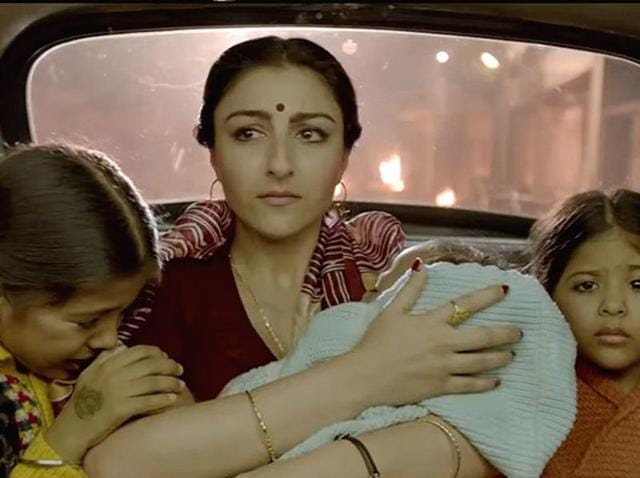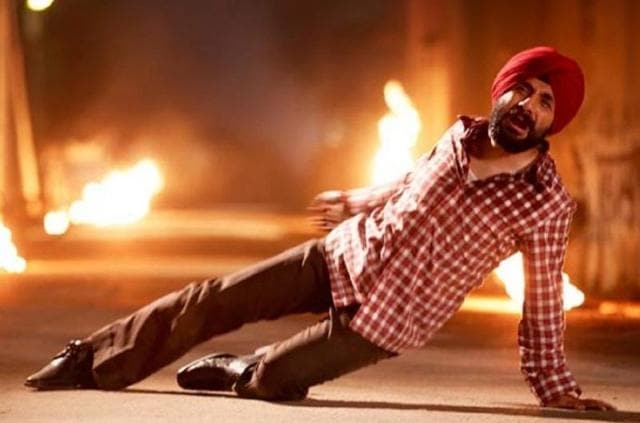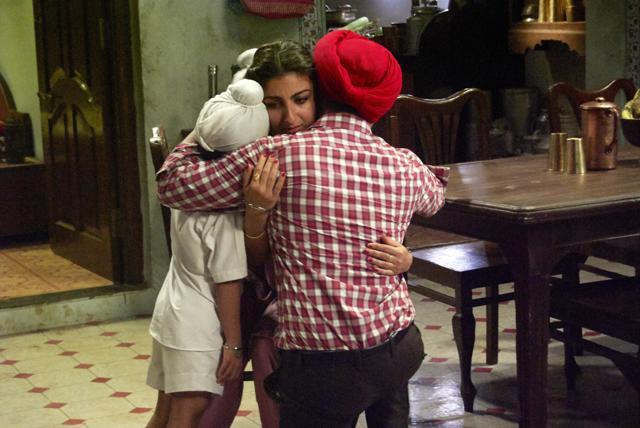31st October review: Soha Ali Khan’s film is dead on arrival
This could have been an important film. Instead, it’s just an opportunity squandered.
31ST OCTOBER

Direction: Shivaji Lotan Patil
Actors: Vir Das, Soha Ali Khan
Rating: ½
Conflict stories make for powerful cinema. They can pull you in, and let you look back with a clarity that is impossible in the moment.
The flipside is, they can be trickier to tell than fiction. They need deft handling. And director Shivaji Lotan Patil’s 31st October, about the anti-Sikh riots in Delhi after Indira Gandhi’s assassination, is the very opposite of deft. Think of a similar-sounding word, with a different vowel.
Patil takes a classic approach: focus on a smaller, human story; plot it against the larger backdrop of politics and violence. A shining example remains Mani Ratnam’s Bombay, also about riots, also about a young family — the aam aadmi caught in a world that’s turned maniacal overnight.

Read: Soha Ali Khan on confronting reality, however bitter it may be
Patil takes a Sikh family — a government employee Davinder Singh (Vir Das), his wife (Soha Ali Khan) and two kids — caught in the crosshairs as Delhi burns and friends and relatives are massacred.
But there are fundamentally amateurish issues with the script. It begins with a time-stamp approach to the morning of October 31 (the day Gandhi was shot), and juggles the story of Singh, his friends and family with that of the assassination. This gives Patil too little time to let the audience emotionally invest in his characters. And it leaves so much time left over that the story drags, and he runs out of things to say.
The murder plot is swift. But Patil’s stop-start story is all over the place. In simultaneous settings, Singh and his family manage what feels like two hours’ worth of morning prep: run chores, chat with neighbours, send kids to school; while, on the other hand, a group chatting at the gurdwara is still left standing there like no time has passed.

Read: It took a lot of effort to play a serious role, says Vir Das
In Ratnam’s Bombay, he sends the common man out on the street to look for his family. He, then, becomes the lens through which the tragedy and the madness are seen. Patil, bizarrely, keeps Singh trapped at home, in bed (low BP, you see) for the most part.
The fear of trapped humans, of not knowing, can be channelled too. But you’ve got to keep the audience inside. Here, the camera goes out with the minor characters, giving them more agency than the leads. And the stock shots of murder and burning are used and re-used so monotonously that they lose impact.
Even scripts so poor can sometimes be salvaged by exceptional acting. Sadly, the performances here are insipid. The supporting cast is made up of flat, unformed characters: NRI boy, funny friend, token drunk man, corrupt cop. The kids speak in chorus and move robotically. It’s like watching a family in a bad 1990s commercial.
This could have been an important film. It seemed so promising, as it fought delays and censorship to make it to the screen. Unfortunately, it’s just another bad movie. And, worse still, an opportunity squandered.
Watch the trailer for 31st October





